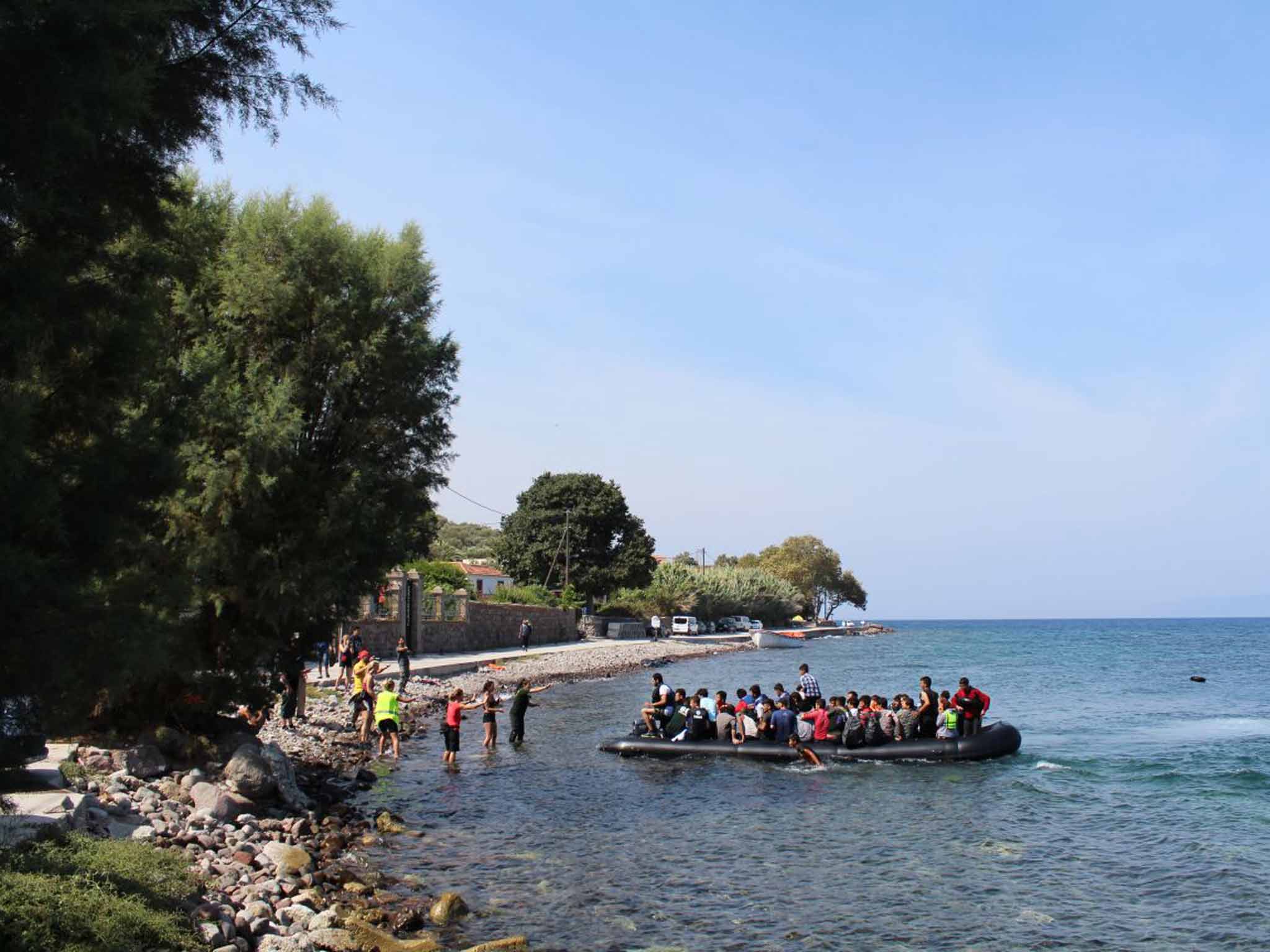Lesbos: Holiday business continues as normal... and the flow of refugees goes on
Just by being there, talking to refugees, making them know that they were welcome, I felt I was making a small difference

Your support helps us to tell the story
From reproductive rights to climate change to Big Tech, The Independent is on the ground when the story is developing. Whether it's investigating the financials of Elon Musk's pro-Trump PAC or producing our latest documentary, 'The A Word', which shines a light on the American women fighting for reproductive rights, we know how important it is to parse out the facts from the messaging.
At such a critical moment in US history, we need reporters on the ground. Your donation allows us to keep sending journalists to speak to both sides of the story.
The Independent is trusted by Americans across the entire political spectrum. And unlike many other quality news outlets, we choose not to lock Americans out of our reporting and analysis with paywalls. We believe quality journalism should be available to everyone, paid for by those who can afford it.
Your support makes all the difference.“An island overrun by refugees” – if you believed the news headlines, you might never come on holiday to Lesbos at all. Every day between 2,000 and 6,000 refugees come crashing up at the island's beaches, with no signs of the flow abating. But, paradoxically, that's what makes this a compelling destination for a holiday.
I hadn't chosen the island because of the refugee crisis. A friend with a family house near the airport had invited a group of 15 of us to come out for a week's holiday. Lesbos isn't blessed with the long sandy beaches of Ios, nor the dramatic volcanic landscape of Santorini, but it has its fair share of small coves and quaint marinas.
On our first day, we drove to Agios Ermogenis, a diminutive bay in the south-east of the island where calm turquoise water laps the sand. Tourists, mostly Greek, were basking on sunloungers. At the beach tavern, salads with huge slabs of feta emerged from the kitchen, followed by fresh calamari, sardines, and sea bass. The retsina flowed. It was holiday business as usual.
But half of us had decided to spend a few days helping refugees in any way we could. So, the next morning we headed for Skala Sikaminias on the north-east coast, a fishing village where the majority of landings take place.
Once off the boats, refugees must make their way to camps near the capital, Mytilini, where they are processed so that they can get a ferry ticket to Athens.
On the coastal drive north, we soon began to pass refugees attempting the long walk from the beach to the camps. Stopping the car, we began handing out water bottles, biscuits and bananas. A group of 10 men from Iraq asked in broken English how far they would have to walk. Their faces dropped when we showed them the distance on our map. One, in clear pain, had been shot in the stomach and legs, in Turkey.
As we reached the beaches a dinghy came in – dangerously overloaded with about 40 refugees. There was a range of emotions: sadness, shock, relief and elation. One lady – perhaps 75 or 80 years old – sat on the beach stoically looking back out to sea.
More boats arrived, bringing lawyers, teachers, doctors, engineers and computer scientists – from Syria, Iraq, Afghanistan and some from Pakistan. It was clear that the most valuable thing we could offer was transport and for the next four hours we taxied refugees up the steep and twisting 4km road to Skaminias village.
“Local people don't see any resolution to this situation. The island doesn't have the resources to cope,” said Fotini Ranstsiou, a volunteer humanitarian worker. “They have sympathy, particularly because many of their families settled here after fleeing Turkey in 1922. But services are collapsing because of the economic crisis.”
As a holiday destination, just by being there, talking to refugees, making them know that they were welcome – I felt I was at least making a small difference. “We don't want to come to Europe to receive a monthly hand out,” Mohammed, a 26-year-old pharmacist told me. “We all want to work, rebuild our lives, and contribute.”
Join our commenting forum
Join thought-provoking conversations, follow other Independent readers and see their replies
Comments